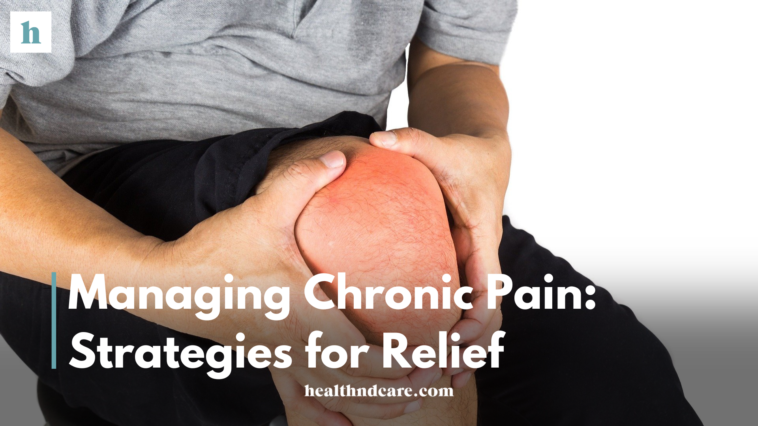It is estimated that more than 30% of adults across the globe suffer from chronic pain, a condition that reduces the quality of life for its sufferers. Learning how to cope with a chronic pain condition is important as it allows someone to take charge of their situation and enhances their participation in daily activities. This article outlines the management of chronic pain in its various forms, including medical, lifestyle, and complementary therapies.
What is Chronic Pain?
According to the National Institutes of Health, chronic pain is pain that endures for more than three months. Pain of this nature can result from various conditions among them arthritis, fibromyalgia, and nerve injury. Chronic pain is different from acute pain in that acute pain indicates that injury or disease is present. Chronic pain can go on existing even after the cause of pain has been dealt with, leading to anxiety, emotional pain, and depression.
Lifestyle Changes
1. Regular Exercise

Regular exercise can do wonders in relieving chronic pain. This is because exercise strengthens muscles, improves the range of motion, and overall physical function. Moderate aerobic activities such as walking, swimming, and yoga are especially useful. People should be active for at least 30 minutes on most days of the week, increasing intensity as the body allows.
2. Healthy Diet

If you are suffering from pain, it is best to have a diet that is rich with anti-inflammatory foods. An individual should consume fruits, vegetables, whole grain, lean proteins, and fats. Fats obtained from fatty fish, nuts and seeds which are high in omega-3 fatty acids have been known to bring down inflammation. Hydration is important as well as lack of it can worsen pain.
3. Weight Management

Being within a certain weight range can help relieve weight from joints and tissues, which is particularly useful for people who possess arthritis. Balancing diets with proper nutrition and exercise provides a solution to maintaining body weight.
Medical Interventions
1. Medication
It is important to speak to a medical professional regarding prescription medicines for alleviating pain. Simple pain-relieving medications such as paracetamol and NSAIDs are suitable for mild or moderate pain. In case of severe pain, stronger medications like opioids or anticonvulsants can be used. It is wise to adhere to the doctor’s guidance so as to lessen risks and adverse effects on the body.
2. Physical Therapy
A physical therapist can use proper exercising strategies and exercises to formulate a fitness plan that would build up muscles and create an enhanced range of motion. Physical therapy usually consist of some measures like manual and heat/cold or ultrasound therapies for better pain reduction methods.
3. Alternative Therapies
Acupuncture, chiropractic, massage and other such complementary alternative medicine techniques may have some effect to relieve pain. In most cases, these methods are the ones which also enhance relaxation by decreasing muscle tension and increasing blood flow.
Integrated Approaches
1. Mind-Body Techniques
Chronic pain conditions can lead to depression and other feeling-based problems, which may be alleviated with the help of mindfulness or even meditation. Stress may be relieved by deep breathing, progressive muscle relaxation, or even guided imagery techniques, enabling the person to cope better. Such practices are particularly effective if done regularly as they shift one’s perspective about pain.
2. Cognitive Behavioral Therapy (CBT)
People with chronic pain can benefit from CBT as it allows them to reframe the way they view pain, redefining its barriers. Seeing a therapist who is trained in pain management has been recognized as a favorable method for decreasing catastrophic thoughts and feelings which are associated with chronic pain at a systemic level.
Conclusion
Chronic pain management is possible with a dynamic approach such as changes in therapy, alternate medicine and even changes in your lifestyle. The time one takes in the gym, the diet actively followed, and trials in the motivating alternate medicines can make plenty of difference in the quality of life of any individual. Patients are advised to seek professional help in building an effective pain management program. Patients in chronic pain should not lose hope, as there exists a very strong reversal in the source.



